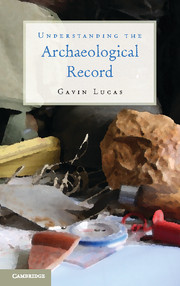1 - The Trouble with Theory
Published online by Cambridge University Press: 05 June 2012
Summary
The New Interpretive Dilemma
Every once in a while, archaeological theory gets a bashing. In the 1980s, in the wake of nearly two decades of new archaeology and its progeny, many started to believe that archaeological theory had devolved into methodology for its own sake. James Moore and Arthur Keene, editors of a 1983 volume which attempted to reappraise the role and status of archaeological method, were critical of the way archaeology had borrowed methods and models from outside the discipline with little thought about whether they were actually viable with the aims of archaeology (Moore & Keene 1983: xiv). They were also especially critical of the way methodology, best exemplified through the growth of middle-range theory, had become increasingly detached from a theoretical base. Two decades later, Michael Shanks launched another major criticism of the direction postprocessualism was heading, in the way it was all too easily drawing on the writings of major French poststructuralists without proper concern for the way it connected to archaeology. ‘Where is the archaeology?’ he asked (Shanks 1990: 294). Whereas processualism was borrowing methods without thought to theory, postprocessualism seemed to be borrowing theory without thought to method. It appears, then, that the potential for a schism between theory and method has been a recurrent concern within archaeology, at least since theory became an explicit subfield of archaeological discourse in the 1960s, if not earlier. Such concerns are still with us today.
In a recent polemical piece for the journal Archaeological Dialogues, Matthew Johnson suggested that there was a real disjuncture between theory and practice – between what we say in theoretical papers and what we do in practice (Johnson 2006: 118). He identified various forms of this lack of correspondence, but the one he singled out was the undertheorization of the link between overt theory on the one hand and other elements of archaeological thought and practice on the other hand (ibid.: 120). Johnson took two examples to explore this, agency theory and phenomenology, which he argued revealed opposing trends. Thus, in the first case, practical applications were argued to be resistant to agency theory because basic archaeological concepts like culture, phase, and type worked against any easy incorporation of the theory. In the second case, it was the opposite problem – the uptake of phenomenology found an all-too-receptive audience in British archaeology because of its strong fieldwork tradition, such that adopting the theory of phenomenology was largely a question of terminological change without any substance behind it. Although one might disagree with Johnson's diagnosis in these particular cases (see, for example, the responses which follow the paper), no doubt most of us can relate to his general point: sometimes a theoretical approach just does not work with archaeological data, and sometimes a theory is so vague that it can work on any data.
- Type
- Chapter
- Information
- Understanding the Archaeological Record , pp. 1 - 17Publisher: Cambridge University PressPrint publication year: 2012



